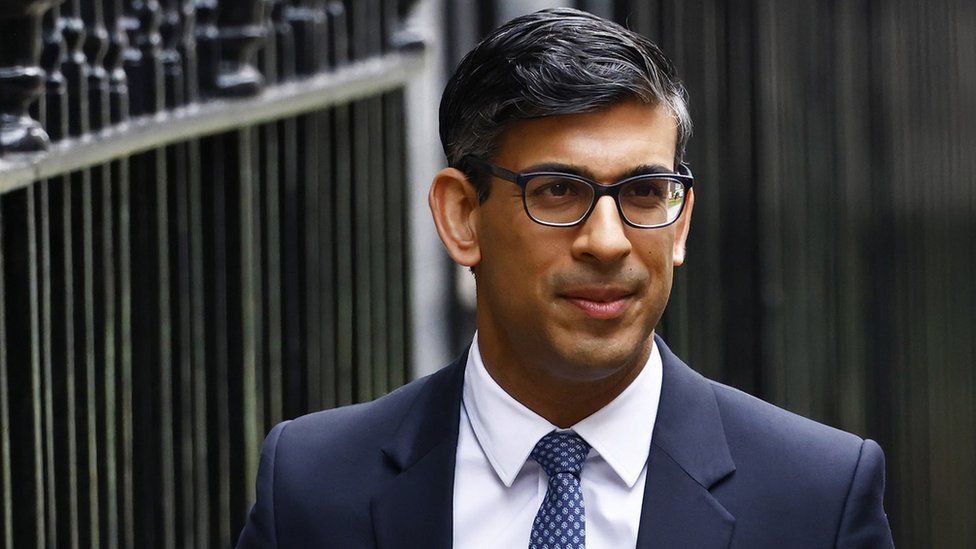ARTICLE AD BOX
 Image source, EPA
Image source, EPA
No 10 has said tax decisions are made "in the national interest, rather than personal interest", after details of Rishi Sunak's financial affairs revealed he benefited from a cut in capital gains tax he voted for in 2016.
A summary published on Wednesday showed his overall tax rate was around 22%.
This is because most of his earnings came from capital gains, which is taxed at a lower rate than income.
Capital gains tax - paid on profits from selling an asset - is set at 20%.
The rate was cut from 28% in 2016 by the Conservative government. Mr Sunak was a backbench MP at the time but supported the move, arguing it would encourage business investment.
Meanwhile, income between £50,271 and £150,000 is taxed at 40%, while the top rate of tax for the highest earners is 45%.
Mr Sunak first promised to publish his tax return last year and released a summary of his financial affairs on Wednesday.
It revealed he paid more than £1m in UK tax over the past three years on earnings of more than £4.7m.
The capital gains tax paid was related to a US-based investment fund, which made up the bulk of his earnings.
A Downing Street spokesman said the decision to cut capital gains tax was made before Mr Sunak entered government.
'Entirely routine'
"But of course all ministers are British taxpayers, so they will be affected by the generality of tax policy, but ministers make decisions on the basis of the national interest, rather than personal interest," he said.
He also pointed to a move in last year's Budget to reduce the 45% tax threshold, which would mean Mr Sunak paid more income tax.
"It is entirely routine for savers to choose to put their investments in funds which focus on delivering long-term growth rather than short-term income generation," the spokesman said.
"The tax details clearly show the considerable amounts of capital gains tax, for example, that is being paid."
Labour has argued Mr Sunak's tax affairs "reveal a tax system designed by successive Tory governments in which the prime minister pays a far lower tax rate than working people who face the highest tax burden in 70 years".
Mr Sunak, who is thought to be one of the richest MPs in Parliament, faced scrutiny over his finances last year, when it emerged that his wife, Akshata Murty, had non-dom status, meaning she did not pay UK tax on her overseas earnings.
As Mr Sunak, who was then chancellor, came under political pressure, Ms Murty released a statement saying she would pay UK tax on her overseas income but retain her non-dom status.
Labour leader Sir Keir Starmer also released tax records on Thursday. They revealed he paid £118,580 in UK tax on total earnings of £359,720 over the last two years.
His earnings included more than £85,000 in capital gains from the sale of a home he had bought with his sister, which she and her children had lived in.
Despite making far less than the prime minister, he paid a greater proportion of his earnings in tax, at an overall tax rate of around 33%.

 1 year ago
58
1 year ago
58








 English (US) ·
English (US) ·